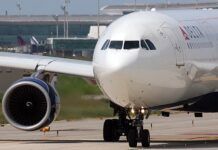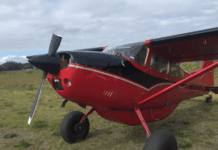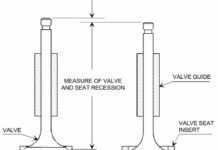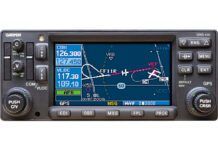 Airline passengers injured or killed in “operational” airline accidents have always been able to successfully sue the airlines if they had proof of airline negligence. However, Airline defense lawyers have frequently persuaded courts that the Airline Deregulation Act of 1978 (ADA) “preempted” state law tort claims for injuries resulting from the airline’s “services.” Thus, claims for injuries resulting from beverage carts, careless storage of overhead luggage, lack of care for disabled passengers, spilling of hot beverages on business travelers, etc., have been blocked in court by ADA “preemption.”
Airline passengers injured or killed in “operational” airline accidents have always been able to successfully sue the airlines if they had proof of airline negligence. However, Airline defense lawyers have frequently persuaded courts that the Airline Deregulation Act of 1978 (ADA) “preempted” state law tort claims for injuries resulting from the airline’s “services.” Thus, claims for injuries resulting from beverage carts, careless storage of overhead luggage, lack of care for disabled passengers, spilling of hot beverages on business travelers, etc., have been blocked in court by ADA “preemption.”
On Monday, November 30, 1998, 11 justices of the 9th Circuit Federal Court of Appeals, in a plain-spoken decision, reversed their own prior decisions and held that personal injury claims caused by the negligence of airlines while providing “services,” will no longer be preempted under the Airline Deregulation Act (ADA). Charas , et al. v. Trans World Airlines, et al. Civil Numbers 96-15490 et seq. (November 30, 1998). While this decision is only binding on federal courts in the 9th Circuit (covering the nine Western states), I predict that the decision will be very influential throughout the country.
The five cases before the 9th Circuit involved American Airlines, Continental and TWA. The claims of the five plaintiffs alleged that flight attendants:
- dislocated the shoulder of a passenger with a beverage cart;
- dropped luggage on a passenger’s head;
- left luggage in the aisles as a trip hazard;
- mishandled handicapped passengers resulting in injury; and
- failed to provide assistance to passengers in need while deplaning.
The plaintiffs will now have a chance to prove their claims.
Coffee? Tea? But Not on Me!
 I predict that the 9th Circuit’s decision will encourage more lawsuits by passengers who feel that they have been mistreated or injured by airline personnel. The 9th Circuit’s decision only dealt with garden variety personal injury claims; however, the rationale of the court is much broader. The justices’ reasoned that if the state law claims of victims do not frustrate the economic deregulation goals of the ADA, then the passengers should have a chance to prove their case in court. Thus, I believe that if this decision is followed by the other federal circuits, many of the types of disputes, which were previously preempted, may now be viable. Potential cases might include:
I predict that the 9th Circuit’s decision will encourage more lawsuits by passengers who feel that they have been mistreated or injured by airline personnel. The 9th Circuit’s decision only dealt with garden variety personal injury claims; however, the rationale of the court is much broader. The justices’ reasoned that if the state law claims of victims do not frustrate the economic deregulation goals of the ADA, then the passengers should have a chance to prove their case in court. Thus, I believe that if this decision is followed by the other federal circuits, many of the types of disputes, which were previously preempted, may now be viable. Potential cases might include:
- Tort claims for discrimination against passengers and pilots;
- Emotional distress claims by handicapped passengers who receive callous treatment by airline personnel;
- Travellers who suffer damages from misrepresentations or deceptive trade practices;
- Ticketed flyers with disclosed precarious health, who cannot get emergency medical care on an airliner;
- Passengers who legally protest bad service but are subjected to false imprisonment, defamation or false arrest;
- People who are injured because airline personnel fail to adequately supervise the distribution of alcohol to intoxicated passengers.
Have the Justices Opened Pandora’s Box?
 Airlines are commercial carriers which make a lot of money from ticket revenue. Airlines sell tickets for a transportation service with the implied representation that they will safely and comfortably carry passengers to their destination. Almost every service business in our society may be held liable if they provide services negligently so as to cause injury. Why should airlines be any different? This is especially true since airlines, as common carriers, have the “highest duty of care” for their passengers.
Airlines are commercial carriers which make a lot of money from ticket revenue. Airlines sell tickets for a transportation service with the implied representation that they will safely and comfortably carry passengers to their destination. Almost every service business in our society may be held liable if they provide services negligently so as to cause injury. Why should airlines be any different? This is especially true since airlines, as common carriers, have the “highest duty of care” for their passengers.
The law should enable those who have been injured by any carriers’ negligence to obtain results in court based on the strength of their case. This decision will correct the arbitrary implementation of a preemption law that was designed for economic regulation, not tort reform.
Insurance defense lawyers tell the story about the intersectional collision between a bus and a van. At the time of the collision, the bus had five passengers. Five minutes afterwards, it had thirty passengers, all rubbing their necks. Let’s hope this decision does justice to those who need it and does not reward the free-loaders.
NOTE: The issues discussed in this article do not constitute legal advice. My objective is to alert you to some common issues so that you can avoid or minimize legal trouble. Anyone with an aviation law problem should be guided by the advice of his or her lawyer, under applicable federal and state laws, after a full and confidential disclosure of all relevant facts.


































